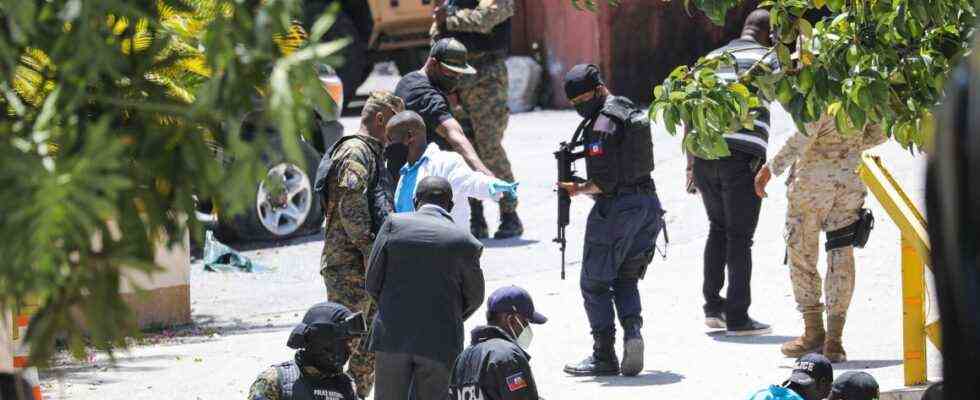Following the assassination of the Haitian president earlier this week, local police say they killed four of the attackers and arrested two others. There was talk of “foreign mercenaries” who spoke English and Spanish. The search for other perpetrators is ongoing, but the background to the crime is still completely unclear.
Only one thing is certain: the fatal attack on head of state Jovenel Moïse has exacerbated the tense situation in Haiti, although the bitterly poor Caribbean state has already had a long and sad experience of political unrest, upheavals and upheavals. Since the founding of the state around 200 years ago there have been revolutions, coups d’etat, brutal dictators and the invasion of foreign troops. There were also natural disasters and epidemics.
And yet the chaos that has ruled the country for a few months is extraordinary, even for Haiti: armed gangs terrorize the population and even kidnap school children and priests. Last week alone, more than a dozen people were deliberately murdered in an attack, including a journalist and a human rights activist. Tens of thousands of Haitians have fled the capital Port-au-Prince in the past few weeks, according to aid organizations.
According to his critics, the president illegitimately clung to power
In any case, Haiti has never recovered from the severe earthquake that devastated large parts of the country eleven years ago. Despite development aid worth millions from abroad, poverty and hunger have only increased. At the same time, the political elite are suspected of systematically and largely shamelessly enriching themselves.
There have been repeated allegations of corruption in the past against the president who was murdered at the beginning of this week and those around him. There were also mass protests, some of which were violent, demanding his resignation, the last only at the beginning of this year. In the eyes of his critics, Jovenel Moïse had long since reached the end of his mandate and was now illegitimately clinging to power, contrary to the constitution.
In fact, the former banana trader was elected president of his country back in 2015. However, there were so many inconsistencies in the vote that it had to be repeated a year later. At the beginning of 2017 Moïse finally took office, but he postponed the parliamentary elections originally scheduled for 2019, at the beginning of 2020 the assembly was then completely dissolved, from then on Moïse ruled by decree. The opposition accused him of expanding his power even further, in addition, his five-year term expired in February.
Moïse denied all allegations, spoke of a coup and that an assassination attempt had even been planned, which his security service was able to thwart. The President did not provide evidence, but arrests were made.
Observers and human rights activists say Moïse himself was linked to the armed gangs, which have been increasingly brutal and punishable in recent weeks. The aid organizations Bread for the World, Medico International and Misereor spoke in a joint opinion last week of a “calculated strategy” by the president, whose term of office has expired and who therefore wants to present himself in the midst of general chaos as the only political solution to curb the violence.
Now Jovenel Moïse himself has been killed. On Wednesday night, several heavily armed attackers raided the private residence of the head of state. His wife was also seriously injured.
According to reports from local and international media, a few neighborhoods of the capital Port-au-Prince were looted the day after the attack, but otherwise the streets were largely empty. The former Prime Minister of Haiti, Claude Joseph, has meanwhile declared himself interim president and imposed a state of siege in the country for 15 days. Haiti’s neighbor, the Dominican Republic, has closed its borders because of the tense situation.

